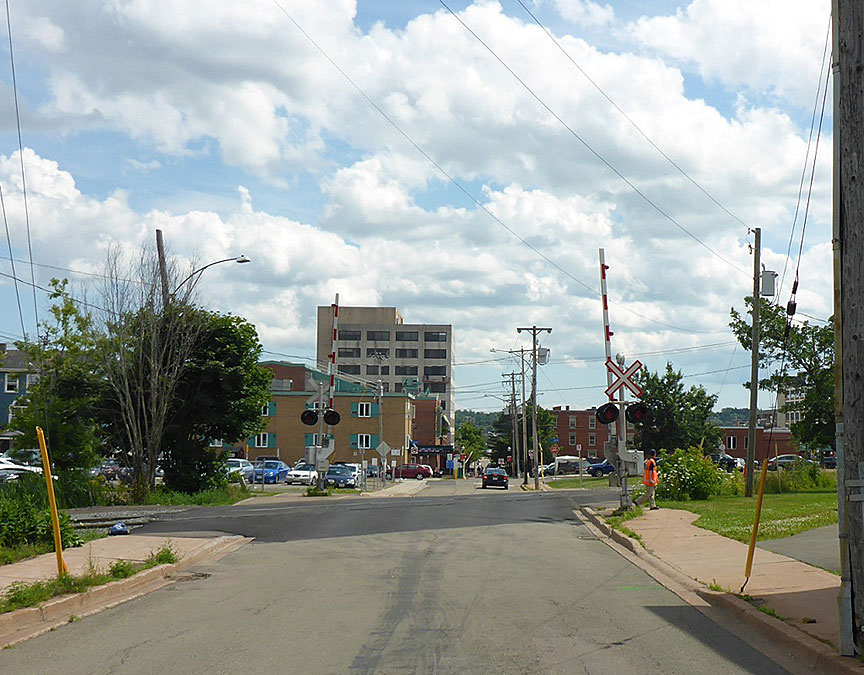Crossing accident
Canadian National Railway Company
Freight train Q-12111-26
Mile 124.43, Springhill Subdivision
Moncton, New Brunswick
The occurrence
On , at approximately 0143 Atlantic Daylight Time, while travelling westward on the Springhill Subdivision, Canadian National Railway Company freight train Q-12111-26 struck a pedestrian in a wheelchair at the Robinson Street public crossing (Mile 124.43) in Moncton, New Brunswick. The crossing was equipped with flashing lights, bell, and gates. The pedestrian was fatally injured.
Safety communications
Recommendations
TSB Recommendation R18-01: The Department of Transport work with stakeholders to identify engineering options for the improvement of crossings designated for persons using assistive devices, conduct an assessment of their effectiveness, and update its regulatory provisions as appropriate.
Media materials
News releases
TSB calls for improvements to pedestrian railway crossings following a July 2016 fatal crossing accident
Read the news release
Backgrounders
Speeches
News conference for Railway Investigation Report R16M0026 - Opening remarks
Faye Ackermans, Board member, TSB
and
Don Ross, Investigator-in-charge, TSB
Deployment notice
TSB has deployed a team of investigators to a fatal railway crossing accident in Moncton, New Brunswick
Dartmouth, Nova Scotia, 27 July 2016 — The Transportation Safety Board of Canada (TSB) has deployed a team of investigators following a fatal crossing accident between a pedestrian and a Canadian National (CN) train in Moncton, New Brunswick. The TSB is gathering information and assessing the occurrence.
Investigation information
Download high-resolution photos from the TSB Flickr page.
Class of investigation
This is a class 2 investigation. These investigations are complex and involve several safety issues requiring in-depth analysis. Class 2 investigations, which frequently result in recommendations, are generally completed within 600 days. For more information, see the Policy on Occurrence Classification.
TSB investigation process
There are 3 phases to a TSB investigation
- Field phase: a team of investigators examines the occurrence site and wreckage, interviews witnesses and collects pertinent information.
- Examination and analysis phase: the TSB reviews pertinent records, tests components of the wreckage in the lab, determines the sequence of events and identifies safety deficiencies. When safety deficiencies are suspected or confirmed, the TSB advises the appropriate authority without waiting until publication of the final report.
- Report phase: a confidential draft report is approved by the Board and sent to persons and corporations who are directly concerned by the report. They then have the opportunity to dispute or correct information they believe to be incorrect. The Board considers all representations before approving the final report, which is subsequently released to the public.
For more information, see our Investigation process page.
The TSB is an independent agency that investigates air, marine, pipeline, and rail transportation occurrences. Its sole aim is the advancement of transportation safety. It is not the function of the Board to assign fault or determine civil or criminal liability.
